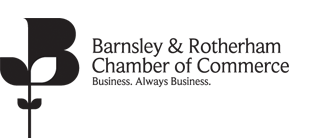
Why it’s important to choose a specialist Research & Development Tax Adviser
With HM Revenue & Customs (HMRC) winning some recent R&D tax Tribunal cases, it is important that any company intending to make a claim does their homework when appointing an R&D tax adviser.
There are a range of firms in the marketplace offering to support companies in making R&D tax credit claims. This ranges from large audit and tax practices to local accountancy firms, and specialist R&D tax credit firms, which can also range from small operations to very large specialist firms. R&D tax advice is a very specialist area of work and it is important to choose your adviser carefully.
Commonly, companies are either using their incumbent accountant to help them prepare the claim or they are appointing an external R&D specialist firm who will prepare the claim on their behalf. A strategy of using a specialist rather than a generalist is likely to provide more assurance that the claim is correct and less likely to be open to a challenge from HMRC.
As the number of R&D claims being submitted by SME’s continues to increase, it seems likely that HMRC will step up compliance activity in this area to check more claims. This means it is important that the claim being submitted is both robust and within the boundaries of the guidance HMRC use to measure claims against – (BEIS guidelines which are available on the gov.uk website.)
The recent Tribunal cases won by HMRC have concentrated on some quite complex areas of the legislation in place. This includes sub-contracted and subsidised R&D, use of third-party workers, insufficient record keeping and most importantly not being able to substantiate that a project qualified for R&D tax relief. The latter point specifically related to a lack of evidence from the company’s key “competent professionals” that were involved in the technical planning and problem solving of the R&D projects. These are all areas where using a generalist or having a go yourself could end up with an enquiry from HMRC.
The benefits of using a specialist R&D adviser is that they should understand the rules and complexities of the R&D scheme to ensure that the R&D claim that is submitted quantifies why the projects fall with the R&D guidelines and that the costs being claimed all qualify. A specialist adviser is also more likely to identify the full cost of the R&D project and areas of activity that may otherwise get missed i.e. indirect activity of people supporting the R&D project.
Although the costs you can claim for are limited to only five categories of expenditure (internal labour, third party labour, subcontracted costs, consumable items and software licences) there can still be many complexities around some of these and this is where a specialists knowledge is vital. Areas around the use of third party or subcontracted labour can need extra care, particularly if the third parties used are connected to the company or the Directors. These are areas a specialist should be able to advise on and ensure the correct treatment of the cost.
For any R&D claim though the first part to quantify is that the projects qualify for R&D tax relief. The guidelines HMRC use have been around for nearly 20 years now and have not changed. What a company might class as R&D does not always fall into the HMRC guidelines as a qualifying project and this is where the skills of the specialist adviser is paramount to a successful claim. They should be able to decipher which projects qualify and where the boundaries are of qualifying R&D within each project. Often the whole project may not qualify (such as early scoping or commercialisation) but certain elements will. Key here is the discussions with the company’s technical people who have been involved in the development – often referred to as the “competent professionals” and capturing the information about the projects accurately to reflect the main criteria HMRC are looking for.
Shorts’ Radius team are all experienced R&D tax professionals including an ex HMRC R&D Tax Inspector. Shorts are also an Accountancy practice and as such members of Professional bodies and adhere to the Professional Conduct in Relation to Taxation guidelines (PCRT) as well as being ATT and CIOT members. It is worth asking any firm you are considering appointing if they are members of any professional bodies as you may find some of the R&D boutique advisers are not part of any regulated body.
Below are a few points to help you when you are choosing your R&D adviser.
What to look for in an R&D tax adviser
- Check that the firm has the expertise to provide this service – are they general practitioners or do they advertise themselves as specialists?
- What qualifications and experience do they have?
- You may want to check that they have experience of advising about R&D claims for clients in the same trade sector as your business?
- Firms with high standards will explain where a claim can or cannot be made, reducing potential problems with HMRC once the claim has been submitted.
- If they are a specialist firm acting alongside your usual accountant or in-house team, will they communicate with your accountant/in-house team and provide them with the information needed to complete your corporation tax returns promptly?
- Are they a member of a professional body which adheres to the Professional Conduct in relation to taxation guidelines (PCRT) or qualified by experience but still adhering to the same principles? (PCRT sets out the principles and standards of behaviour that all CIOT and ATT members and students (together with those of a number of other professional bodies) must follow in their tax work and is ‘endorsed’ by HMRC)
- Have they agreed to:
- provide a copy of the R&D claim report to you for approval prior to submission
- explain the R&D claim where you ask them to
- make you aware of any areas of judgement or potential risks; and
- provide any support needed to your accountant or in-house team?
- What documentation will you be provided by the specialist in relation to the claim being submitted to HMRC?
- What after care service do they provide if HMRC enquire into the R&D tax credit claim?
Although there are a few things to consider when making an R&D claim, don’t let that put you off claiming as the UK Government is actively encouraging funding Innovation to help grow the economy and recover from these difficult times. R&D tax reliefs is seen as a vital incentive to reward companies for innovating and is without doubt the most generous tax incentive available. It is also a great way to put cash back into the business with HMRC issuing refunds within 28 days in most cases.
Shorts’ Radius team has been successfully preparing and submitting R&D claims for SME’s across the country for many years and have helped save companies millions of pounds in Corporation Tax or receive R&D Tax Credits. For a free 30-60 consultation to see if you are eligible or if you claim already but would like to see how we can help visit:


Sorry, the comment form is closed at this time.